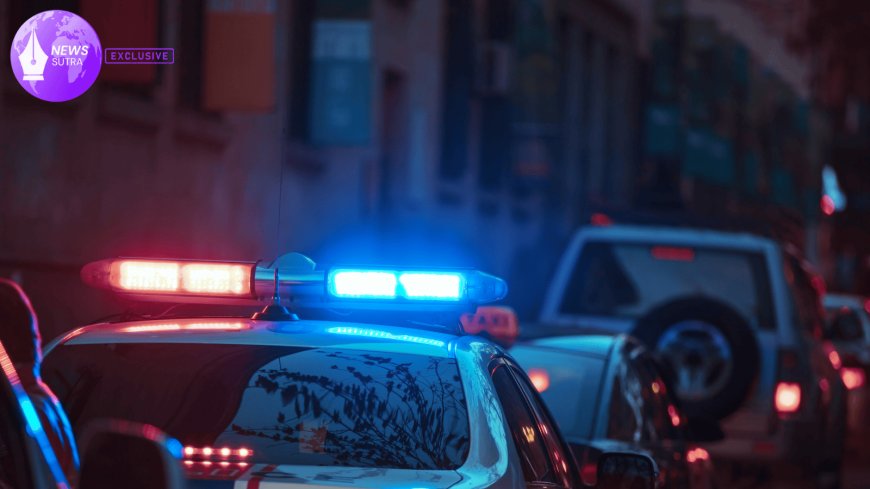Trump's Crime Crackdown Expansion: Federal Forces Set to Target Chicago and New York
President Trump plans to expand his federal crime crackdown to Chicago and New York, with leaked memos revealing large-scale deployments. Civil rights concerns rise.

The Trump administration is preparing to expand its controversial crime-fighting initiative by deploying federal forces to Chicago and New York City, according to leaked internal memos reviewed by investigative reporters. The move represents one of the most aggressive federal interventions in urban crime since the 1970s, raising both legal and civil rights questions at home and abroad.
Background: A New Phase in Federal Crime Policy
Since his return to the White House in January 2025, President Donald Trump has vowed to prioritize law and order above all else. In a speech earlier this month in Dallas, Trump promised to “restore safety to America’s most dangerous cities” by using “every tool at the federal government’s disposal.”
The current initiative, informally referred to within Pentagon circles as “Operation Sentinel”, was first piloted in St. Louis and Baltimore earlier this year. Reports show mixed outcomes: while shootings decreased by 12% in designated neighborhoods, residents reported concerns about over-policing and surveillance.
According to Justice Department insiders, the next phase involves deploying joint task forces of federal marshals, FBI tactical units, and in some cases, National Guard support in coordination with local police.
The Leaked Memos: What They Reveal
A cache of documents obtained from senior defense sources sheds light on the scope of the planned expansion:
-
Target Cities: Chicago and New York are specifically named as “priority deployment zones.”
-
Force Numbers: Up to 1,500 federal agents could be mobilized by late September.
-
Surveillance Measures: The memos outline expanded drone monitoring and mobile facial-recognition units.
-
Legal Justification: The documents cite federal jurisdiction over organized crime, narcotics trafficking, and terrorism as the basis for intervention.
One memo bluntly states: “Local authorities have failed to adequately stem violent crime. Federal intervention is not optional; it is imperative.”
Whistleblower Accounts
Two anonymous Pentagon staffers who reviewed the memos expressed unease.
“The scale of this operation is unprecedented in modern peacetime cities,” one source said. “There’s a real concern this blurs the line between law enforcement and military action.”
Another whistleblower warned that political motives were at play:
“This isn’t just about crime statistics—it’s about projecting strength in cities that have historically opposed Trump politically.”
Legal and Civil Rights Implications
Constitutional scholars argue that while the federal government has authority to intervene in specific criminal investigations, mass deployment of forces into cities without state approval is a legal gray area.
Professor Linda Chavez, a constitutional law expert at Columbia University, explained:
“The administration is leaning on broad interpretations of the Insurrection Act and Homeland Security statutes. This raises red flags for civil liberties, particularly regarding freedom of assembly and privacy rights.”
Civil rights groups including the ACLU have already signaled plans to challenge the expansion in court, pointing to the risk of unlawful surveillance and militarization of urban communities.
Chicago and New York Officials Respond
Leaders in both target cities voiced alarm upon learning of the plans.
-
Chicago Mayor Karen Lewis stated: “What we need is investment in jobs and education, not troops patrolling our neighborhoods.”
-
New York Governor Kathy Hochul warned: “Federal overreach of this magnitude undermines state sovereignty. We are prepared to resist legally and politically.”
Both cities reported crime declines in 2025 compared to the previous two years, raising further questions about the necessity of the operation.
The Political Dimension
The crackdown arrives as the 2026 midterm elections loom, with Trump seeking to reinforce his narrative of restoring order nationwide. Analysts suggest the deployments may be designed as much for optics as for public safety outcomes.
Polling by the Pew Research Center in early August showed 48% of Americans support increased federal involvement in crime control, while 45% oppose it—highlighting deep partisan divides.
Historical Comparisons
The United States has a history of deploying federal forces in cities, from the civil rights era to anti-drug operations in the 1980s. However, the leaked memos suggest a scale and surveillance component more reminiscent of counterinsurgency campaigns abroad than traditional law enforcement.
Historians caution that such strategies risk repeating mistakes of the past, including public backlash and further erosion of trust between communities and authorities.
What Comes Next
According to the memos, final approval for Operation Sentinel’s Chicago and New York phase could come as soon as September 10, with advance teams already scouting deployment sites. The White House is expected to announce details during a scheduled press conference on Tuesday, August 26, 2025.
If the plan proceeds, federal forces could be visible in both cities by early fall—just as political tensions and economic challenges are intensifying nationwide.
Conclusion: America at a Crossroads
The expansion of Trump’s crime crackdown into Chicago and New York represents more than a policy shift—it reflects a defining struggle over the balance between security and liberty in 21st-century America.
With whistleblower accounts, leaked documents, and pushback from local leaders, the stage is set for a legal and political battle that could shape not just the future of U.S. cities, but the scope of federal power itself.








